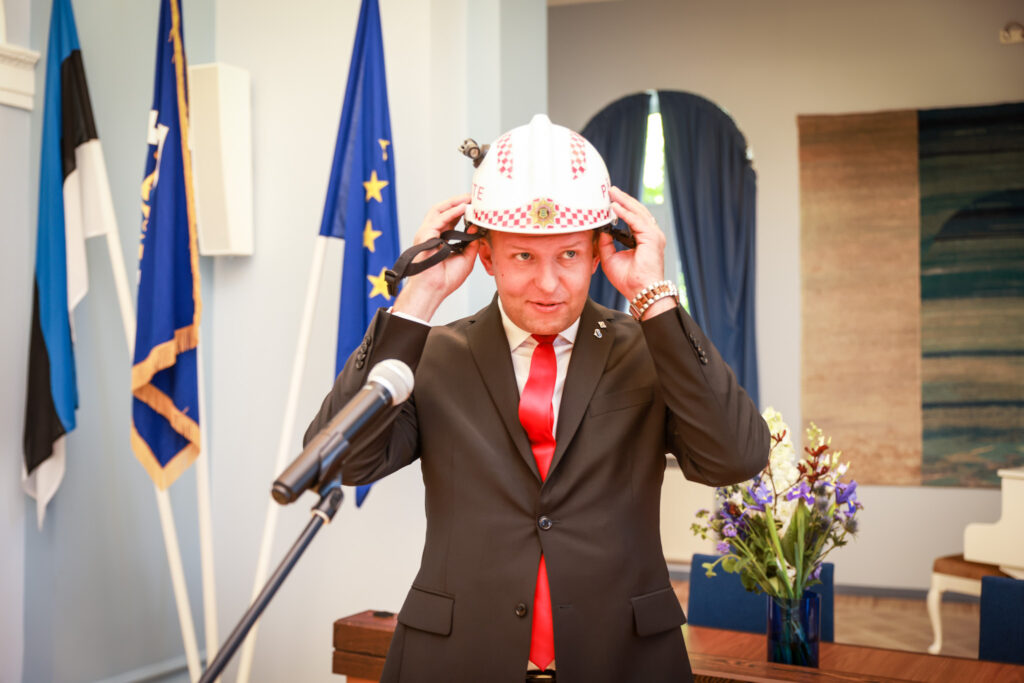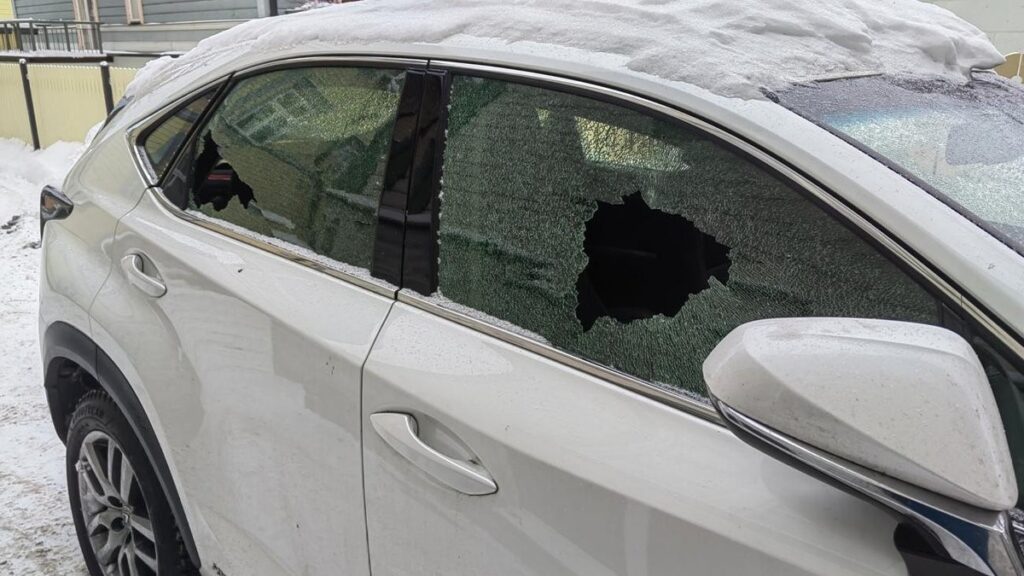From December to February, the Estonian Internal Security Service arrested 10 suspects believed to be acting on behalf of Russian special services, including individuals suspected of vandalising the cars of a government minister and a journalist; the ongoing criminal investigation points to a coordinated hybrid operation by Russian special services against Estonia’s security, aimed at creating fear and tension in society.
The suspects allegedly acted on the instructions of Russian special services in various roles, such as gathering information for attacks and carrying out some of them, including smashing the car of the Estonian interior minister, Lauri Läänemets, and a journalist from the Delfi news portal, and defacing monuments.
The public prosecutor, Triinu Olev, said this was a preliminary suspicion that would be investigated in a criminal case.
“The case was opened under the section of the Criminal Code dealing with crimes against the security of the Republic of Estonia. At the request of the prosecutor’s office, six people have been taken into custody as there is a risk that they will continue their criminal activities and evade criminal proceedings,” Olev said.
Russia uses social media for recruitment
The individuals recruited by Russian special services and now arrested were paid for the attacks they carried out, the director general of the Estonian Internal Security Service, Margo Palloson, told the Estonian newspaper Postimees.
“In fact, the perpetrators of the attacks received some financial reward for each attack they carried out. This reward was not significant – and it was definitely not worth the risk,” Palloson said.

He noted that Russian special services use social media for recruitment.
“This is currently a dilemma for Russian special services – the borders are closed, it’s difficult for their officers or agents to come to Estonia. Fewer and fewer Estonians are travelling to Russia. And in this case too, the Russian special services are using social media for recruitment.”
Russia seeks to sow fear and instability
Palloson told Postimees that those arrested were planning further attacks.
Estonian security experts Eerik-Niiles Kross and Raivo Aeg told Postimees that the aim of the Russian special services is to instil fear and instability in society, but this is not a new development as Russia has been carrying out such activities against European countries for some time.
“The aim of such activities is to instil fear and create the impression that there are forces ready to oppose the government and the present order. It may not be genuine, but if such actions are imported, it may be possible to ignite some embers. Recent events also seem to indicate an attempt at destabilisation. The level at which they are operating is increasingly aggressive and not as covert as in the past,” Kross said.

A former director-general of the Internal Security Service, Raivo Aeg, pointed out that the desecration of monuments and gravestones has been a recurring problem in Estonia, and in this sense the recent incidents are nothing new.
Estonia more aware and vigilant than other countries
“Monuments are regularly targeted by malicious acts, but incidents of car vandalism directed by Russian special services are unprecedented. At least I am not aware of any such previous cases,” he said.
Lauri Läänemets, the Estonian interior minister whose car was damaged, said that compared to many other countries, Estonia was more aware of hybrid operations and the risk of attacks by Russian special services.
“Hybrid attacks and attempts to destabilise our society have been going on for years and our security structures are dealing with them on a daily basis. Sooner or later, people who collaborate with the enemy’s special services against our state will be caught,” he said, referring to the arrest of people suspected of vandalising his car.
“In this respect, Estonia is no different – Russian special services attempt such hybrid operations, attacks and influence activities everywhere. You could say that Estonia is more aware and vigilant about these threats than many other countries. We leave the identification of such operations and their local agents to the professionals, but there is much we can do ourselves to remain vigilant,” Läänemets said.

Summoning Russia’s charge d’affaires
The Estonian foreign ministry is summoning Russia’s ad hoc charge d’affaires over the hybrid operation.
“It is clear that Russia is systematically trying to undermine our society by organising hybrid operations against our state, our people and our security. It is also clear that we will not break and for us, there is nothing surprising about Russia’s hybrid activities,” the foreign minister, Margus Tsahkna, said.
“By doing this, Russia hopes to weaken our statehood and our unwavering support for Ukraine. It is clear that such plans against Estonia cannot succeed,” he added.

